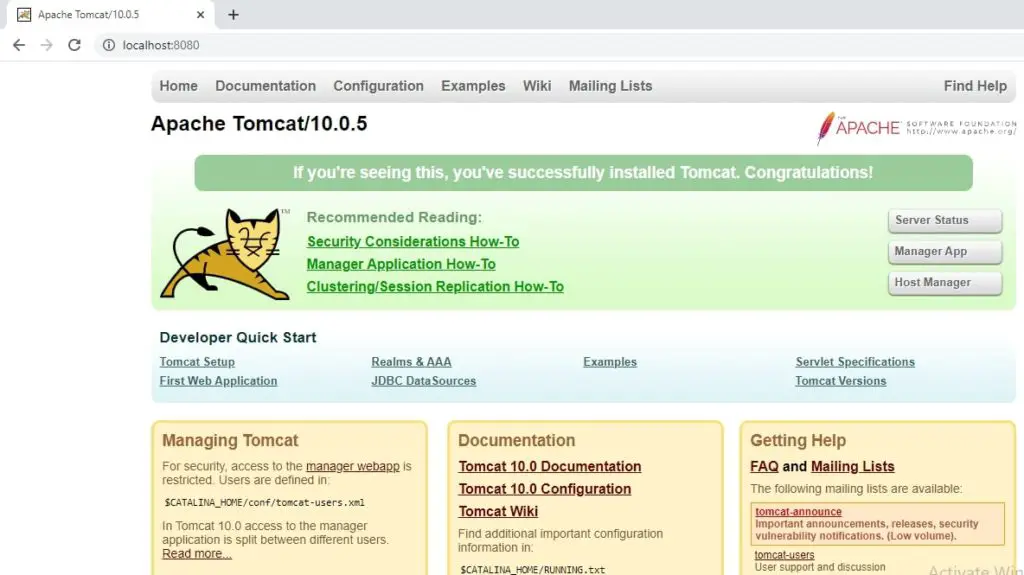➤ Computer Generation
➤ First Generation
➤ Second Generation
➤ Third Generation
➤ Fourth Generation
➤ Fifth Generation
➤ Basic of Programming
➤ Computer Systems
➤ Virtual Machine
➤ Advantages of Open Source Software
➤ Open Source Software Advantages and Disadvantages
➤ Applications of Computer in Business
Web Server Vs Application Server. Web server and application server both are a piece of software that automates the web application and its web component execution i.e. it listens to client requests continuously 24*7. Both of them take the request, pass them to appropriate web components, executes them dynamically, gather the result from them, and sends the results as responses to the browser.
But there are many differences between the web server and application server. The application server contains all the facilities which the webserver can provide, and it also contains more additional features. In sort, we can say Application server = Web Server + Additional features. Let us see the difference between a web server and an application server.
| Web Server | Application Server |
|---|---|
| Gives less no of middleware services. | Gives more middleware services. |
| It allows only HTTP, and HTTPS protocols. | It allows HTTP, HTTPS, RMI-IIOP, T3, SMTP, and etc. |
| It allows you to create domains. | It does not allow you to create domains. |
| Cost of the web server is cheap. | The cost of the application server is expensive compared to the webserver. |
| It is lightweight (easy to start, and easy to stop). | It is heavy and takes time to start or stop. |
| Web server consumes or utilizes less resources. | Application servers utilize more resources. |
| Multithreading is not supported. | Multithreading is supported. |
| It can’t handle a large number of requests. | It can handle a large number of requests. |
| Can serve only web-based applications. | Can serve web and enterprise-based applications. |
| Facilitates web traffic that is not very resource intensive. | Facilitates longer-running processes that are very resource-intensive. |
| Web server is useful or fitted for static content. | The application server is fitted for dynamic content. |
Middleware Services:- Logging, Auditing, Security, and connection pooling are the middleware services. Middleware services are not minimum logics of application development, they are additional, optional, and configurable (ability to enable or disable) logics of the application. Without middleware services also web applications can run. But when we develop web applications by applying middleware services it becomes more perfect and accurate.
Example of middleware services:-
- Security:- To protect the application (Authentication + Authorization)
- Auditing:- Keeping track of user activities.
- Logging:- Keeping track of code flow.
- Connection pooling:- Keeping a bunch of readily available JDBC con objects.
Authentication + Authorization means checking the access permissions of a user on resources/components, checking the identity of a user. One webserver/application server can contain one or more web applications, and we can apply these middleware services on one or more deployed web applications.
The web servers are providing a very less number of middleware services whereas application servers are providing a large number of middleware services.
Web Server Vs Application Server in Java
Apart from the above points, the Java web server vs application server has some other differences.
| Web Server | Application Server |
|---|---|
| Contains only Servlet Container, and JSP container. | It gives Servlet Container, JSP container, EJB container, JMS server, Email server, etc. |
| Developed by using only Servlet, JSP technologies of JEE. | Developed by using all JEE technologies. |
| Example:- Tomcat (upto5), Resin, Jetty | Weblogic, Glassfish, Wildfly, Jboss, Jrun, Oracle 10g AS, Tomcat(from 6v onwards) and etc… |
Apache Tomcat Server (called “Tomcat” for short) is an open-source implementation of the Java Servlet, Java Server Pages (JSP), Java Expression Language, and WebSocket technologies. Tomcat provides a “pure Java” HTTP web server environment in which Java code can run. It is developed and maintained by an open community of developers under the auspices of the Apache Software Foundation, released under the Apache License 2.0 license.

Up to tomcat version 6, it was only a web server. but from version 7 onwards it has added multiple facilities like connection pooling support, JNDI registry, and e.t.c. Therefore it also can be called an application server, but it is not really a full application server because it gives only basic features.
In Java, when do we use web server vs application server?
- Generally, we use Java web servers to automate the execution of Java-based small-scale web applications. Example:- University web application, collage web application.
- Use a Java application server to automate the execution of Java-based large-scale or complex web applications. Example:- E-commerce, banking websites, and e.t.c.
If you enjoyed this post, share it with your friends. Do you want to share more information about the topic discussed above or do you find anything incorrect? Let us know in the comments. Thank you!